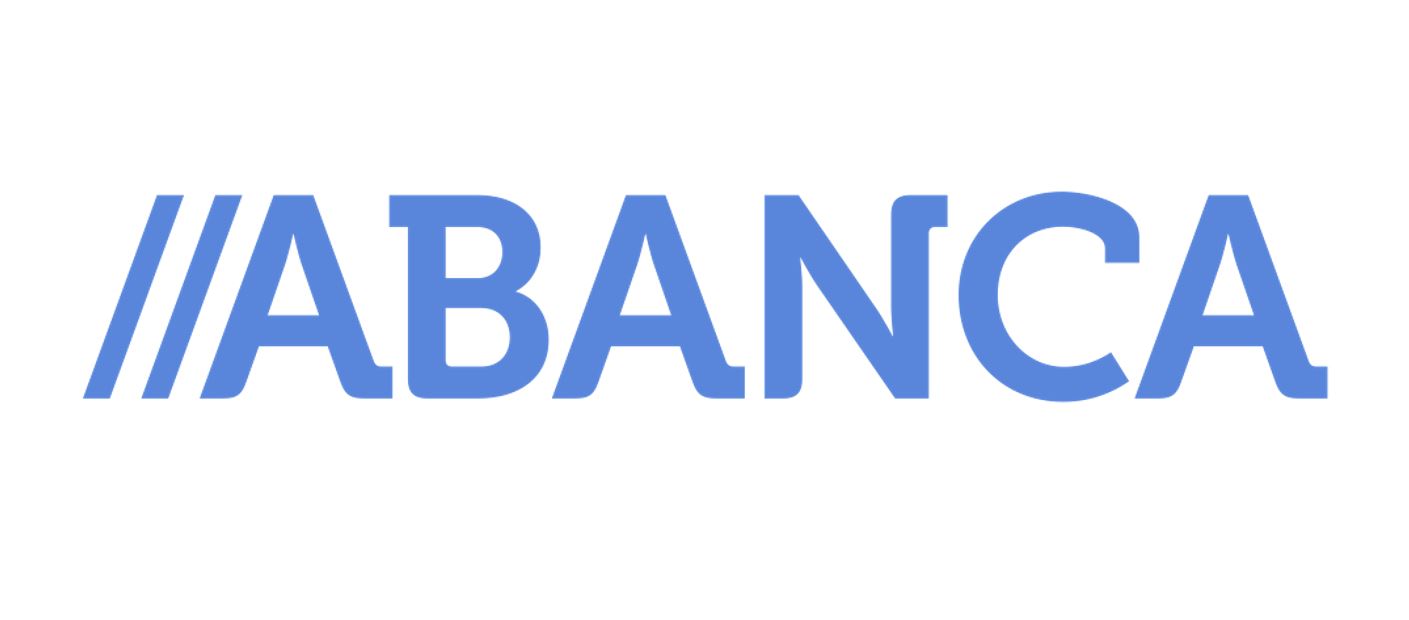What does a digital future mean?
Digital transformation is a way of structuring personal, economic and social actions by using digital communication and media infrastructures. It is not only the process of moving from the analogic to the digital, but it is also a new way of shaping the social reality in which many hybridizations between the digital and the physical take place.
The digital is not only transforming the ways we work, but also the ways we live and our interactions with other people, with machines, and with the natural world.
Implementing the digital paradigm shift requires design ways of working. Design represents both a holistic and eclectic approach to the interaction between the subject and the object.
In the words of German philosopher Immanuel Kant: “the only reason for an object to exist resides in the emotional engagement between the subject and the object”. It encompasses both the ambience and the intrinsic attributes embedded in the object. The aesthetics transcends the sole functionality of an object.
This call for papers is an opportunity to think about the destiny and direction of our societies, and henceforth to guide the theory and practice of this new technological, social and political challenge.
Confirmed Plenary Speakers

Alejandro Ruelas-Gossi
Clinical Professor at the
School of Business Administration
University of Navarra

Jaume Aurell
Professor of Medieval History
University of Navarra

Montserrat Herrero
Professor of Political Philosophy
University of Navarra
 |
We call scholars and practitioners to send an abstract of no more than 500 words on one topic or case study related to the described topic to mherrero@unav.es. |
|
Final papers should not have more than 10,000 words, including bibliography. |
|
|
The presentation of the papers should not exceed 20 minutes. |
|
Deadline of abstracts: March 1, 2022. |
|
|
Participation fee: 300€. |
|
|
If you have any questions or suggestions regarding the conference, please contact Montserrat Herrero (mherrero@unav.es). More information Location Details: 1200 Brickell Avenue #300. Miami, FL |
Alojamiento recomendado

Hotel Indigo
![]() Web
Web
![]() +1 305 746-6827
+1 305 746-6827
200$/noche
Sin desayuno y sin tax (del 7% aprox)
Restaurantes cercanos

Novecento
Ateliermonnier
Mary Brickell Village
Crazy About You
Program
9 JUNE 2022
9:30 |
Opening RemarksRicardo Martí-Fluxa. Presidente del Instituto Empresa y Humanismo |
10:00 |
Plenary Lecture I: Crafting The Uknown
|
11:00 |
PAUSE |
11.30 |
Current Developments in Digital BusinessFrancisco Javier Garzón Morales (Trade and Financial Adviser. Trade Comission in Miami |
11:45 |
Roundtable: The Future of Digital Currency and Digital PaymentsChair: Lucía Lavalle |
13:30 |
LUNCH TIME |
Panel I: Crafting The Unknown.Chair: Alejandro Ruelas-Gossi (Universidad de Navarra) |
|
14:30 |
Orchestration: a Strategy in the Digital Age to Reduce Inequality.Sophie Meza van Strahlen (MGCO Universidad de Navarra) |
15:00 |
Co-create future. Towards an active, Bold and Agile Work of the Board of Directors, even with the Pain of Self-disruption.Rafael Gómez Nava (IPADE, Mexico) |
15:30 |
"El propósito corporativo, clave para el futuro sostenible de las organizaciones".Monica Vázquez. General Manager ABANCA USA. |
Panel II: AI and the Future of WorkChair: Jaume Aurell (Universidad de Navarra) |
|
16.00 |
The Promise of the Future of Work to Put People First.Robert de Simone (Senior Consultant at Gallup. Washington DC-Baltimore) |
16.30 |
Skills needed for the Future of Work: an Approach from ColombiaMichael Jones (University of Cincinnati, Cincinnati, Ohio, USA) |
17.00 |
Ocio y negocio en la transformación digitalBlanca Reguant. (Liceu Politecnic y Colaboradora de investigación Grup de Recerca Història, Arquitectura i Disseny. (Universitat Internacional de Catalunya) |
17:30 |
PAUSE |
18:00 |
Plenary Lecture II: What is Reality?
|
10 JUNE 2022
9:30 |
Plenary Lecture III. The Narrative of Disruption
|
10:30 |
PAUSE |
Panel III Humanism and Digital Transformation IChair: Montserrat Herrero (Universidad de Navarra) |
|
11.00 |
Balance crítico sobre las posibilidades emancipadoras del desarrollo tecnológico desde la perspectiva de la teoría críticaCecilia Coronado (Subdirectora del Instituto de Humanidades Universidad Panamericana) |
11.30 |
Moral Approaches to AI: Missing power and marginalized stakeholdersCarolina Villegas-Galaviz (Universidad Pontificia Comillas, ICADE / University of Notre Dame) |
12:00 |
Digital Art as a Laboratory of Social TransformationRaquel Cascales (Universidad de Navarra/Research Fellow at Columbia University) |
Panel IV: Humanism and Digital Transformation IIChair: Jaume Aurell (Universidad de Navarra) |
|
12.30 |
Strange bedfellows? The humanities thriving in the digital ageJosé Manuel Cerda (Universidad de los Andes/Universidad del Desarrollo de Chile) |
13:00 |
Humanistic Marketing for Quality of Life and SustainabilityReynaldo Rivera (Universidad Austral, InterMedia Social Innovation) |
13:30 |
El papel de la transparencia en el combate a la corrupciónCatalino Mendoza (Instituto Nacional de Transparencia, Acceso a la Información y Protección |
14:00 |
LUNCH TIME |
Panel V: Digital Transformation and CommunicationChair: Carolina Lanao (CFO Supercable ALK International) |
|
15:00 |
Digital media in Chile: Influence of the Editor and the Audience in the Editorial Meeting.Francisca Greene (Universidad de los Andes de Chile). |
15:30 |
Media Reform in the Digital Era: Lessons from the Political Pendulum in Ecuador.Juan Francisco Rumbea (Escuela Superior Politécnica del Litoral. Facultad de Ciencias Sociales y Humanísticas. Ecuador). |
16:00 |
PAUSE |
16.30 |
Round Table: Wrapping up the Unknown
|
18.00 |
Encuentro virtual graduados IEH |
Topic
Suggestions
Geography matters, but in a very different way than it used to in the past.
Ancient cities always wanted to be close to a river or to a port for trading engagements. Today, geography has a different meaning: it is about creating a thinking atmosphere, or being a "thinking city."
Thinking cities –and thinking jobs– have become the most important poles of attraction today. Economies and societies are under continuous transformation, and technology is the main source of disruption. Today, we coexist in a variety of micro-worlds that are day-by-day more diverse. The unit of analysis has switched from the country to the city.
It would be interesting to introduce the dichotomy of thinking cities vs. doing cities. The unit of analysis of emerging and developing countries is not sufficient to explain the asymmetry of economic development across the world anymore. Geography can foster both virtuous (thinking–high value jobs) or vicious (doing–low-paid jobs) cycles. Nowadays, we find doing cities in developed countries, and thinking cities in emerging economies.
Digital technologies have reshaped employment and how we work. The possible perils of technology on unemployment might be one of the most impactful threats we are facing: Industry 4.0 and ‘uberisation’ seem to be the killers of thousands of jobs.
While AI might seem like a future phenomenon, it is actually happening today in many productive sectors. Sectors such as manufacturing, medical diagnostic, distribution, cybersecurity, marketing, transportation, shopper personalization, warehouse, advertising, legal, and human resources, among many others, are being highly impacted by the development of AI.
Today, the impact of algorithms, big data, and machine learning is growing in every kind of job. In addition, recent digital advances have also allowed for a fast transition to remote work, which
has become necessary due to the Covid-19 pandemic. For many, a hybrid future is imminent.
We need to radically rethink companies’ cultures and leadership styles and find ways to adapt them to this new and complex environment. How can we best cope with the novel challenges of a hybrid work environment? What managerial skills are required to lead remote and in-office teams simultaneously?
Algorithm firms are not just born from an idea, but remain an idea. This business model follows the concept of Strategy Orchestration. Strategy Orchestration flips traditional strategy on its head. Rather than starting with what you control, and looking for ways to leverage it, managers begin with an opportunity and then assemble the required resources in its wake.
Strategy Orchestration happens when a firm pursues an opportunity, not by leveraging strategic power, and not by controlling all the required resources, but by assembling and managing a network of partners (nodes). The musical instruments clearly have an intrinsic value by themselves, just like a product does, but the coordinated interplay of the sounds of the different instruments plays a unique story. Clearly, the value of the orchestra –like the value of the network– brings an emotional, and not just a transactional, impact to the audience.
In the field of strategy, we observe successful firms expand their value content from product-focus to network-focus. They accomplish this through the deliberate orchestration of nodes around their platforms. They strengthen their strengths. They orchestrate their weaknesses. They migrate from “product-transaction with a customer” to “story-impact into the audience”. Products are transactional. Stories are emotional.
In the wake of the 2008 global financial crisis, private cryptocurrencies entered the financial scene through the launching of bitcoin. Since then, thousands of private cryptocurrencies have flooded the financial system. However, they are still not used as medium of exchange due to their high volatility. But new technologies are bringing new developments into our monetary system.
On the one hand, stable coins and cryptocurrencies with stability algorithms are improving the performance of private sector money. On the other hand, Central Banks around the world are preparing plans to launch Central Bank Digital Currencies (CBDCs) to incorporate some of the advantages of cryptocurrencies: global payments, interoperability, speed of transactions and accessibility, among others.
What will the future await? Will CBDCs completely debunk cryptocurrencies? Will cryptocurrencies remain, as an asset class, as a means of payments or both? Can these developments help entrepreneurs in emerging economies harness their business and ideas through a much wider reach? Can cryptocurrencies debunk regular currencies in countries with failing official currencies? Will CBDCs and cryptocurrencies coexist? How will governments react to this challenge from the private sector?
The humanistic perspective is generally pessimistic about technological processes because technology seems to take us away from governing ourselves.
Algorithms have begun to structure our lives, as they are being used to determine whether someone is hired, promoted, offered a loan, or provided housing, as well as to decide which political ads and news articles consumers see.
We used to think of digital transformation in terms of personal isolation. Certainly, many thinkers have argued that society is generated by the need that human beings have for each other. However, there are other thinkers (including philosophers as far back as Cicero and Hegel) who understand that the most human thing is to relate not out of need, but out of freedom.
If this idea is transferred to a new humanism, it implies that the way in which we relate to each other will also have to be redesigned: society will have to find new ways in which we relate to each other, with our families, at work, in entertainment, and in education. Digitalization does not mean isolation.
This conference asks for papers dealing with ethical, humanistic, and legal aspects of digital transformation.


